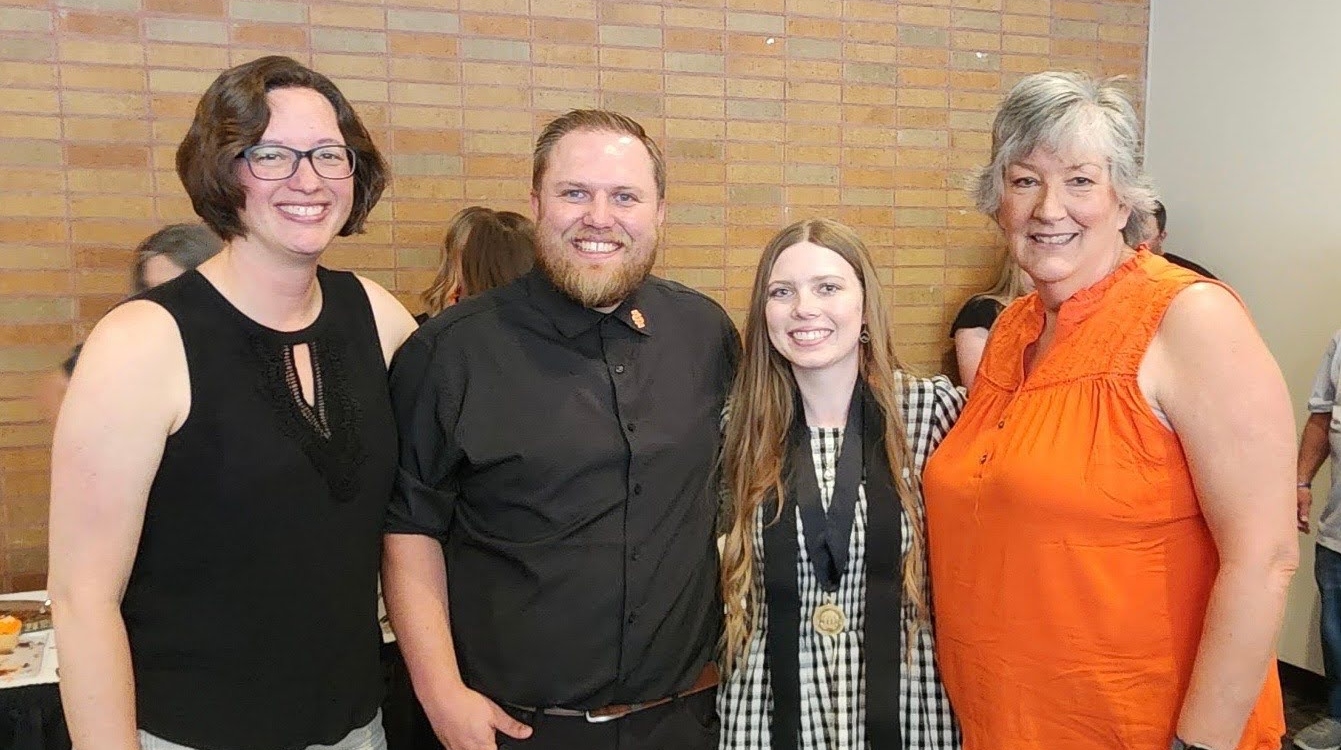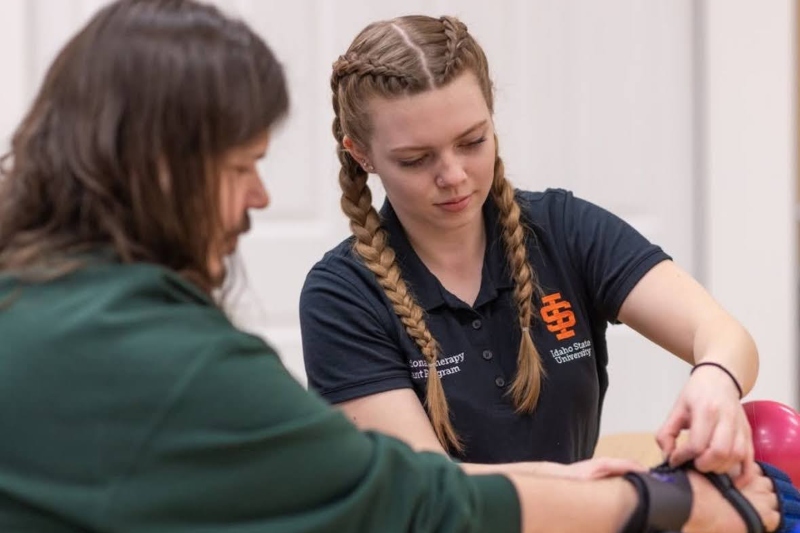Against All Odds
College of Technology Student Graduates After Severe Injury

In February 2023, Emma Kolman’s life changed in an instant. Kolman, a student in Idaho State University’s Occupational Therapy Assistant program, was on a ski trip with her husband. On the final run of the day, Kolman—traveling at high speed—collided with a building at the bottom of the slope. She required immediate CPR and was transported to a hospital in Boise, where she spent three weeks in the ICU. She had suffered a diffuse axonal traumatic brain injury (TBI), one of the most severe types of brain injuries, which occurs when the brain rapidly shifts inside the skull, causing widespread tearing of its delicate communication fibers.
Kolman’s other injuries were extensive, including a collapsed lung, broken ribs, a broken collarbone, pneumonia from aspirated vomit, and full paralysis on the left side of her body. Doctors gave her just an eight percent chance of waking up from her coma. Kolman, however, defied the odds.
“The journey of a thousand miles begins with a single step,” said Kolman, reflecting on her path to crossing the stage at her graduation from Idaho State University’s College of Technology.
Kolman regained consciousness, and was faced with the unimaginable challenge of relearning basic skills such as walking, talking, and swallowing. She was later transferred to a hospital in Salt Lake City, where she spent five weeks in the rehabilitation unit, receiving the same occupational therapy services she had just been learning to provide.
Despite the daunting recovery journey ahead of her, Kolman was determined to return to school. With the support of her family, therapists, and what she described as a healthy dose of stubbornness, she returned to the OTA program in August 2023 — less than a year after her injury. Facing several cognitive challenges, including short-term memory loss, difficulty with emotional regulation, and persistent fatigue, Kolman’s strong work ethic was essential.

Kolman was in her second semester of the program at the time of her accident and returned to graduate in the spring of 2025. The rigorous two-year OTA degree prepares students with the clinical expertise to help individuals of all ages and backgrounds navigate a wide range of health challenges, regain their independence, and improve their overall quality of life. Students are trained to support patients in performing meaningful daily activities—from essential tasks like eating and dressing to the hobbies and routines that bring joy, identity, and purpose. Occupational therapy takes a holistic approach, addressing not just physical and cognitive abilities, but also emotional well-being and environmental influences.
“She is an inspirational student who has fought adversity with grace and grit. She persevered through a rigorous program and kept her humor and strength until the end. We are all so proud of her and are excited to see how far she will go. We know she will inspire her future patients and fellow clinicians wherever she ends up,” said Joanne Trammel, program coordinator for the OTA program.
Now, Kolman is preparing for her national board certification exam and looking ahead to starting her career. Through her journey—from student to patient to OTA graduate—she has done what few can: take the most difficult experience of one’s life, overcome it, and use it to empower others.
